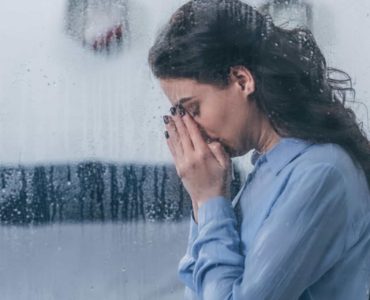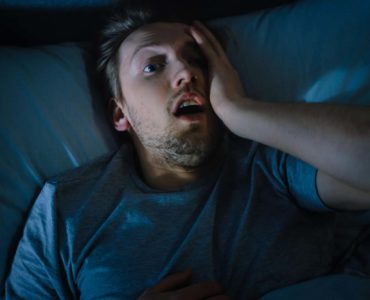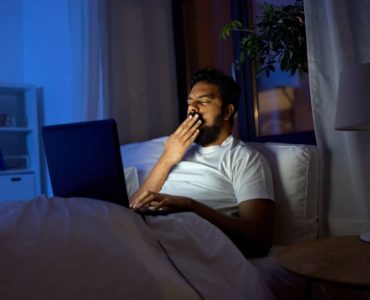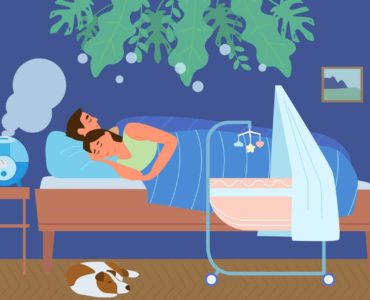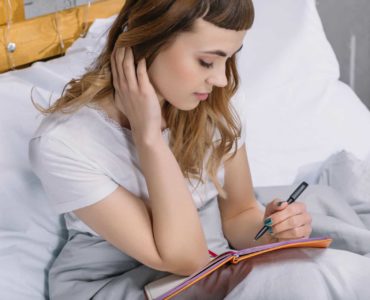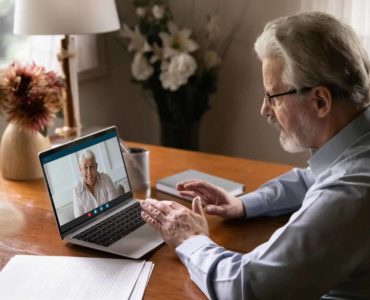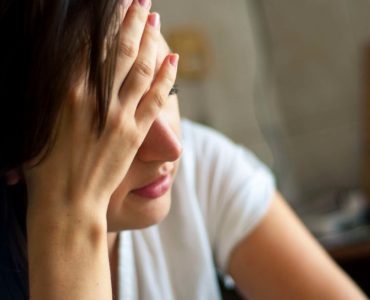-
How does poor quality sleep affect daily life?
Getting the right amount of sleep and feeling rested is key to living a full life. A lack of sleep has a noticeable negative impact on our mind and body after just one bad night. Over time, the cumulative effects of sleep deprivation can be a major risk factor for your health.
Learn more about the Effects of Long-Term Sleep Deprivation.
-
Is loud snoring the sign of a serious problem?
It can be. Loud snoring isn’t always a problem, but it is a symptom often associated with obstructive sleep apnea (OSA).
Learn more about Snoring and the Related Health Risks.
-
Can sleep disorders be treated?
Yes. The first step in successful treatment is accurately diagnosing the sleep disorder. With the right information, your doctor will be able to identify the problem and develop an effective treatment plan. Depending on the diagnosis, treatment options may include using a CPAP device, medication or cognitive behavioral therapy.
-
What type of sleep testing is recommended for me?
Generally, at-home sleep evaluation is prescribed as a convenient way to diagnose sleep apnea. When someone is struggling with a more complex or unknown sleep disorder, testing at the clinic can provide more information that helps with diagnosis.
Find out more about the Benefits of In-Home Sleep Studies and Getting Evaluated at a Sleep Center.
-
What is it like to have a sleep evaluation performed in the clinic?
An overnight sleep study performed at a specialized clinic can help diagnose a disorder by allowing technicians to observe and collect data as you sleep.
On the evening of your scheduled evaluation, you will be shown the facility and allowed to answer any questions that you might have. Each person has a private room with a comfortable bed. After measuring some baseline vital signs, you are fitted with sensors which will monitor your body throughout the night. Technicians collect data from a separate surveillance room while you sleep. The test is complete by 6:00 am and then you are free to return to your regular activities.
Learn more about Getting Evaluated at a Sleep Center.
-
What is it like to do sleep testing at home?
At-home sleep evaluation must be requested by a doctor for a patient. Once you have the special equipment which monitors breathing, you can go home and do the test that night. Instructions are given to show you how to put the sensors on your finger and abdomen, and how to wear the mask over your nose and mouth. The at-home testing process is convenient and usually completed in just one night.
Learn more about the Benefits of In-Home Sleep Studies.
-
How can I get evaluated for a sleeping disorder?
The first step should be to talk with your primary care physician about your concerns and symptoms. Then, your doctor can refer you to a sleep specialist for evaluation. Results from sleep testing will help your doctor diagnose the disorder and develop a treatment plan for you.
Get more information about our Sleep Testing Options & Services.
-
What are signs that I should be tested for a sleep disorder?
There is no single symptom that determines if someone is suffering from a sleep disorder. If you think that you may have a problem, these are signs that you should talk with your doctor about getting tested.
- Loud, chronic snoring;
- Daytime tiredness or a consistent lack of energy;
- Awaking with a sore throat or dry mouth;
- Experiencing periods when you stop breathing, or being told that it sounded like you were choking or gasping while asleep;
- Frequent headaches in the morning;
- Irritability, mood swings, and depression;
- Regular difficulty falling asleep;
- Waking up frequently or trouble staying asleep;
- Problems concentrating during the day.
Read more about the .
-
What is good sleep hygiene? How can I improve mine?
Sleep hygiene is simply a term for all of the routine habits that people can use to fall asleep faster and have better quality rest. Poor sleep habits are among the most common problems in our society. We interrupt our sleep with drugs, chemicals and work, and we overstimulate ourselves with late-night activities, such as television and mobile devices. Yet, nothing is more frustrating than not being able to sleep.
Here is some foundational advice for good sleep hygiene:
- Don’t drink caffeine and avoid smoking before bedtime.
- Get at least 30 minutes of aerobic exercise during the day, but avoid strenuous workouts right before bed.
- Limit naps throughout the day. If necessary, a 30-minute nap should be enough to feel reenergized without disturbing the normal pattern of sleep.
- Have a light snack before bed, but don’t eat heavy meals late in the day.
- Enjoying natural sunlight for a period during the day helps regulate the sleep-wake cycle.
- Stick to a regular bedtime routine. This should include taking a warm bath, listening to light music, or reading to relax for at least 15 minutes.
- Reserve the bed for sleep. Don’t use the bed as an office, to talk on the phone, watch TV, etc.
- Keep the bedroom cool, well-ventilated, dark and quiet to promote sleep.
- Try to go to sleep and wake up at the same time every day.
- Don’t take your worries to bed. Leave your worries about job, school, or daily activities behind when you go to bed.
Read more about how to Stay Energized Throughout the Day.
